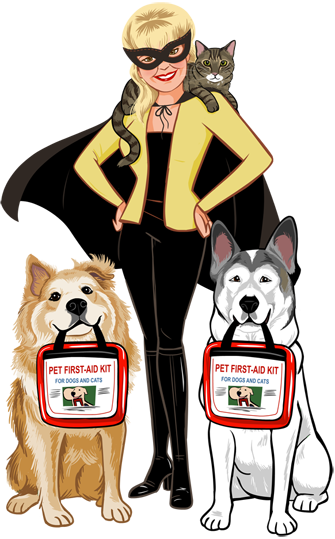
It’s always a difficult proposition to maintain a lush green Bermuda lawn. Things get even trickier when you have a pet in your house.
However, it’s possible to have a beautiful lawn that you and your pets can enjoy with a little smart care. A well-maintained lawn increases your home’s visual appeal and makes it a safe and fun place for your pets to play.
This article will explore 5 best practices to keep your Bermuda lawn in top shape. Let’s check it out.
Watering Wisely
Bermuda grass has the ability to withstand drought. However, you still need to water it well and regularly to flourish. Bermuda grass needs one to one and a half inches of water every week in the summer to stay green.
The other tricky thing is, if you overwater Bermuda grass, it could lead to fungal diseases. In contrast, underwatering can result in brown patches and stress them out.
Hence, try to water thoroughly but not regularly. This way, you would allow the solid to dry between your watering sessions. A good thumb rule is to water thoroughly once a week. By doing this, you can make sure that there is enough moisture to penetrate 5-6 inches into the soil.
Ideally, you would want to use a timer while watering. This scheduled approach can help you save water and maintain a healthy lawn. Try not to water in the middle of the day when evaporation chances are high.
Additionally, have a proper drainage setup for your lawn to avoid water logging. Waterlogging can damage grassroots and can encourage diseases and pest growth.
Regular Pet Waste Removal
Keeping your Bermuda grass healthy starts with thorough and effective pet waste removal. Pet droppings contain bacteria and nutrients that can burn the grass, turn the green grass into brown, and attract pests.
This not only spoils the aesthetic look of your lawn but can cause health problems for your family and pets. The other thing that you need to keep in mind as a pet owner is that pet waste sanitization is more important than simple cleaning.
Disinfecting the area is as important as scoping the waste. According to Scoop Soldiers, pet waste contains bacteria, viruses, and microbes like E. coli, salmonella, and giardia. They’re unpleasant and potentially dangerous to both humans and pets.
A study suggests that every gram of dog feces has 23 million fecal coliform bacteria. Fecal coliform bacteria are indicators of giardia and cryptosporidium, two other disease-causing organisms.
This can be done using a disinfectant that’s safe for pets or a bleach solution diluted with water.
You can also designate a specific area for your pet so that it can excrete or urinate in one place. It’s the easiest and most effective way to deal with pet waste.
Keep your yard clean by monitoring it regularly and use a bag holder to collect pet waste. Remember, the faster you get rid of waste, the better it is for you, your family, and your lawn.
Nutrient Management
Proper fertilization with essential nutrients is a must for a thick lush green Bermuda lawn. You need to consider restoring nutrients that get depleted due to mowing, pet waste, and walking around too much.
Make sure you choose pet-friendly fertilizers like organic fertilizers that are low in phosphorus and nitrogen. Excessive amounts of nutrients could lead to water pollution and lawn damage. It can also lead to more serious problems like low oxygen levels in the water.
The other downside of over-fertilization is it could lead to nutrients burnt off, weakened roots, and a higher chance of diseases. Check the fertilizer package for the recommended application rate and do soil testing to find out what your lawn needs.
Protection from Wear and Tear
Pets can ruin your Bermuda lawn by digging, urinating a lot, and walking around. So the best thing you can do to avoid these issues is keep your pets engaged. Give them plenty of toys and let them enjoy their playtime.
For frequent urination, you can make a designated potty area. Similarly, switch your pet’s play area regularly. This way you can avoid frequent foot traffic which is the cause of soil compaction. It’s been estimated that soil compaction can lower yields by up to 60%.
Speaking of damaged areas, get rid of all the dead grass and loosen up the soil. You can spread a topsoil layer and reseed it with Bermuda grass seed.
The other important thing that you need to be aware of is that new grass could take time to grow. Hence, make sure to keep the soil moist. Consider pet-friendly fencing or partitions to keep newly seeded areas safe.
Preventive Care
Regular lawn maintenance is key to preventing problems like weeds, diseases, pests, and uneven growth while maintaining a healthy Bermuda lawn. The more you mow, the thicker the grass grows and the fewer weeds to deal with.
Therefore, make sure to mow your Bermuda grass to a height of 1 to 1.5 inches. Additionally, avoid cutting off more than one-third of the leaf blade at a time. This way, you can have a lush green healthy lawn that resits diseases and pests.
The other important part of preventive care is early detection and treatment of brown patches, insects, or fungal growth. You can manage pests and diseases by inspecting your lawn regularly.
You’re better off preventing problems than fixing them, so make sure you take proper care of your lawn to minimize problems.
These five best practices will help you as a pet owner turn your Bermuda lawn into a lush, green one. Having a healthy lawn is not just about looks, it’s also about safety and comfort for your pet. If you’re patient and consistent, finding that sweet spot between lawn care and pet ownership should be easy.
Make sure to regularly follow the above-mentioned practices so that your Bermuda grass remains healthy and vibrant throughout the seasons. Maintaining a beautiful, pet-friendly lawn ensures years of joy and pride in your outdoor space.








